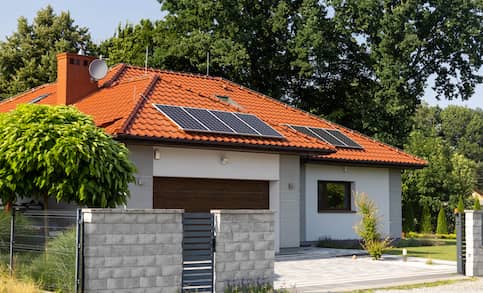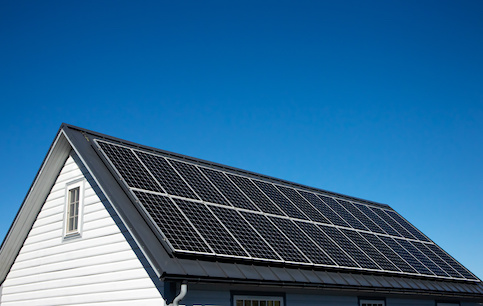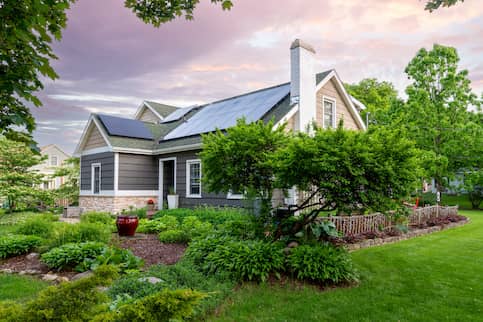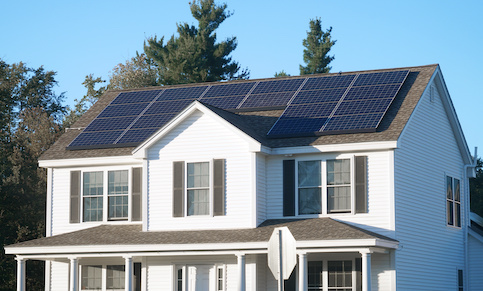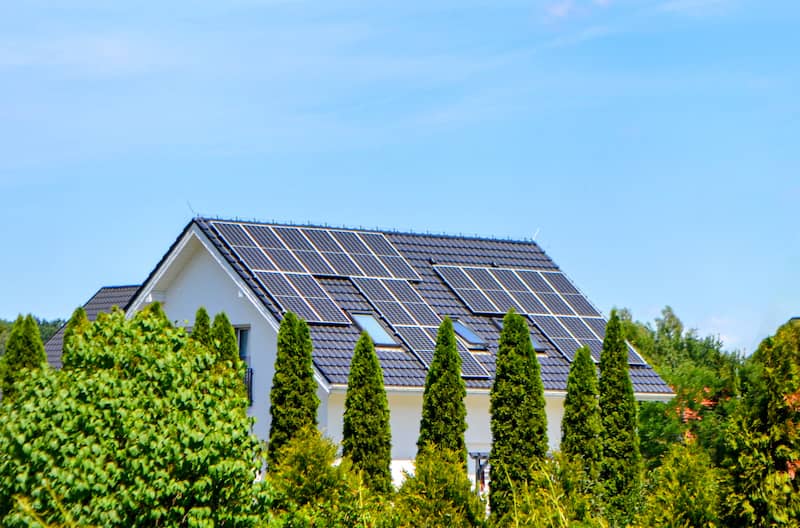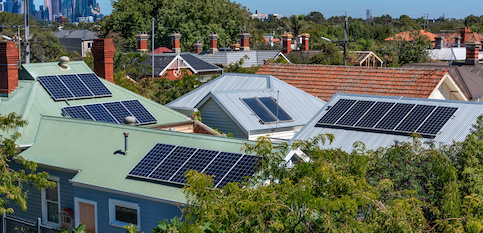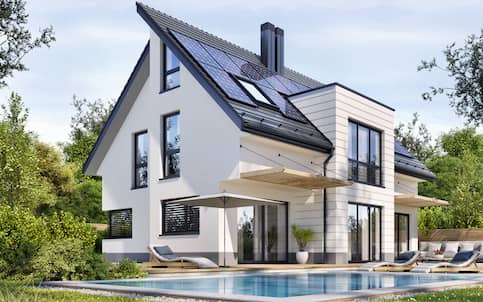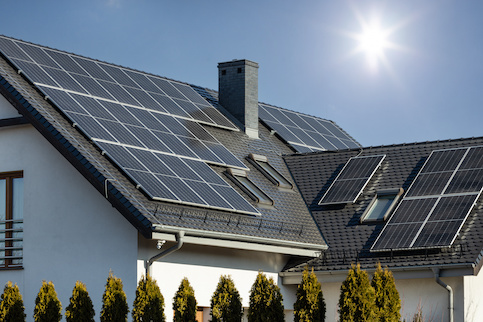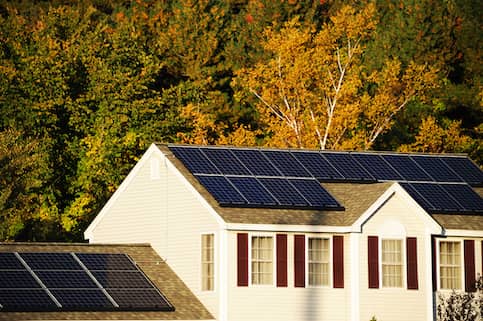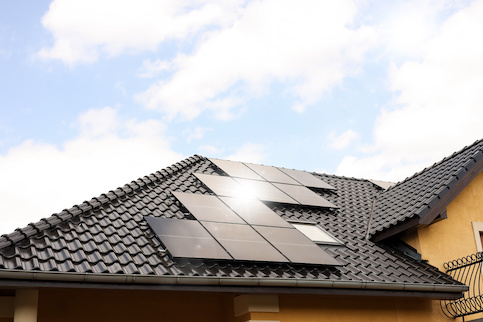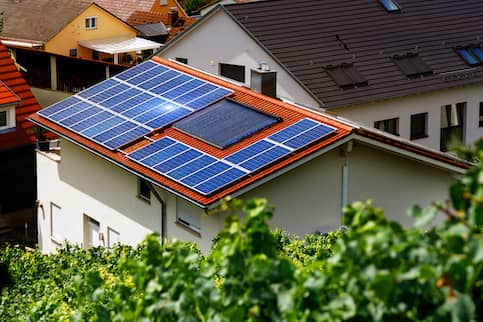How Long Do Solar Panels Last?
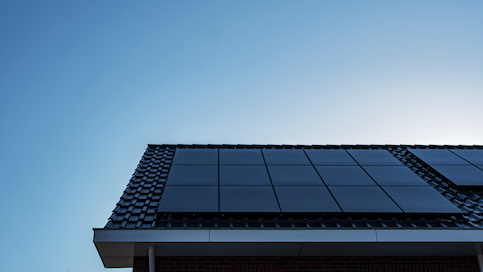
Solar panels can be a considerably large investment. If you live in a suitable area for solar, your panels can increase your home’s value and pay for themselves over time via electric bill savings – but when you’re determining how long it will take for your panels to pay themselves off, it will be important to understand how long the lifespan of a solar panel actually is. Like most things, solar panels unfortunately don’t last forever and will degrade over time.
Today, let’s talk about how long solar panels last, what causes them to degrade and how you can keep your solar system running for as long as possible.
Need extra cash for home improvement?
Use your home equity for cash-out refinance.
How Long Do Solar Panels Last On A House?
Most solar panels last an average of 20 – 30 years. Like other appliances and types of machinery, solar panels tend to degrade over time. In a perfect world, well maintained panels could technically last forever. But unfortunately, there are many factors at play that prevent solar systems from operating indefinitely.
See What You Qualify For
Home Purchase
Home Refinance
Tap Into Equity
Do Solar Panels Go Bad?
Solar panels don’t necessarily “go bad” – there’s no cutoff date for when a solar panel system stops working. Panels do, however, degrade over time and become less energy-efficient. Photovoltaic degradation means that your solar panels will slowly produce less and less power as time goes on. This phenomenon is caused by a number of factors like extreme weather damage, harsh climates, lack of regular maintenance and more that we will expand on later.
Solar Panel Degradation Rate
Solar panels typically degrade at a rate of about 0.5% per year. That means that after 20 years of use, the average panel will produce 90% of the solar energy that it output in year 1, according to the National Renewable Energy Laboratory (NREL). After the 20 – 30 year “lifespan” of a solar panel, it can usually still produce electricity. The only difference is that now, the energy output will be less predictable and likely less effective than it was previously.
This means you can keep using the same solar panels for as long as they work, technically – but you may suffer some detriments in energy production unless you replace the panels. 0.5% is just the average degradation rate, as well – your panels could degrade slower or faster, depending on environmental factors and other potential damage. Every homeowner’s unique location and panel condition will impact their specific rate of degradation.
Condition of Panels | Potential Degradation Rate (per year) | Approximate Energy Production After 20 Years |
|---|---|---|
Median | 0.5% | 90% |
Average | 0.8% | 84% |
Poor* | 1.5% | 70% |
*Degradation rates can be as high as 3.8% per year or more, according to NREL. A panel in poor condition could produce 70% or even less solar power after a 20-year period.
Factors That Impact The Lifespan Of Solar Panels
Numerous factors can impact the lifespan of your solar panels, from weather to accidental damage. Let’s go over a few issues that could cause your solar panels to experience a decline in energy production as they age.
Type Of Solar Panel
When you install solar panels, you have a few different options for what type of panel you’d like to go with. On the market today, you can typically get monocrystalline, polycrystalline and thin-film solar panels. Monocrystalline panels are by far the most popular because they are most efficient. If you go with polycrystalline or thin-film panels, you could find your solar system less effective in general and over time.
Installation
Improperly installed solar panels can cause the system as a whole to degrade faster. You’ll want to make sure everything is properly set up and wired to capture and convert energy at an optimal rate. Regular panel maintenance checks by your solar company are a great way to make sure your solar panels are working the way they should be.
Climate
The climate where you live can have a big impact on the lifespan of your solar panels. If you live in an area where it rains often or you experience high winds, your panels could be damaged by the elements over time, causing them to degrade or break altogether.
Maintenance
It’s important to get your solar panels cleaned and inspected once every year. Regular maintenance can help keep your panels producing energy like they’re brand new. Taking care that your panels are not damaged or malfunctioning and that they are free of debris and have full access to the sun is crucial to prolonging their useful life.
Fund your renovations with a cash-out refinance.
See what you qualify for!
Tips For Extending Your Solar Panels’ Lifespan
To keep your panels running as efficiently as you can, consider the following tips:
- Get annual maintenance inspections
- Keep your panels clear of debris
- Check for damage regularly, especially after storms
- If possible, cover your panels during harsh weather to protect them
- Get a warranty, which may offer replacement panels if yours are damaged
- Use a battery to store excess power produced by your panels
Signs Your Solar Panels Should Be Replaced
If your solar panels were completely covering the cost of your electricity bills and that is suddenly no longer the case, your panels likely need to be replaced. Any significant dip in energy production could point to an issue with your solar panels.
Beyond watching the energy output of your solar panel system, you should also keep an eye out for damage. Cracks, corrosion and other damage to your panels can severely hinder energy production. If you notice anything wrong with your panels, call your solar company as soon as possible.
In addition to degradation and damage, if your panels are over 25 years old, you may want to consider replacement, as they may not be as efficient as they once were.
The Bottom Line
Solar panels are a great way to power your home with clean energy, as well as save on your electricity bill. But like most other appliances and tools, solar panels tend to degrade in quality over time. However, by keeping up with maintenance, you can extend the life of your panels and get the most use possible out of them before replacing anything.
Interested in purchasing solar panels for your home? Explore the different solar options available to you today.
